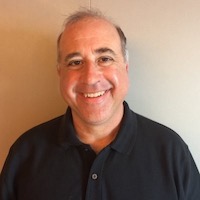
“Take a breath and listen!” a defendant yelled at me a few months ago as I was going through the obligatory warnings I give to defendants in court before taking their pleas.
I told her quietly that I would listen to her once I finished explaining the complaint filed against her. Her request now haunts me more than ever as I have been trying to be mindful and meditate each day since the beginning of November.
Do we, in our jobs and in our personal time, really take a breath and listen? Do we listen without judgment? I know we all need to—and once we try, the results can be life changing.
I am a Municipal Court judge in Texas. I see everyone in our community at some point. I don’t think I’ve ever thought of mindfulness being a part of the courtroom before now. We see so many individuals of all ages and types. After a while, I often catch myself asking the same questions, giving the same warnings, and saying the same answers. I try to listen, but in the whole swim of so many people and so many years, it is so easy to not pay attention.
I now realize that each moment, including everything I hear and see, is unique and important in its own way.
This week my yoga teacher, Erika Ervin, offered me a new meditation: take a thought, focus on it, and then let it float away. Take a second thought, focus, and let that float away. The meditation was difficult, and I have not stopped thinking about it.
Court is really like that meditation. Different individuals appear before me. They have unique requests, backgrounds, and stories. I have the law, which I must follow, but as a judge, I also have discretion. I can hear what they have to say and try to provide a solution that brings justice and resolution to their cases.
Last Friday, I tried to apply this mindfulness practice to my work in court. A defendant told me that he had been paying the fines on his cases when he could. Trouble and challenges had shadowed him: a lost job, two young children he desperately wanted to support, his wife was in and out of drug rehabilitation, and his father had a terminal illness.
As I listened to his story, I focused in the present on everything he told me. I ignored any other narration I had heard before or expected to hear later. I could see this man was putting before me not only his humanity but also his quest to resolve his case and be a good citizen. I waived his fines and fees owed because he had done everything he could to complete his punishment and any more punishment would be an undue burden on him. When he left the courtroom, I knew I had been truly “mindful” of his case.
This idea of mindfulness not only applies to my courtroom but can be something we all can use every day. So many things hit us in the moment: beauty, importance, and wonder. But our minds are so focused on the future and past that we are often blind to the present and what is actually happening in our lives.
The present moment offers us items of value through which we can affect change and offer solutions.
I always make a point not to be staring at a computer screen when I talk to defendants. We all could benefit from dropping the screens and experiencing the moment directly.
Whenever I had practiced meditation or yoga before, I started to notice what was happening internally. Everything I worked on was really in my head from beginning to end. Now, I have been working on being mindful of everything around me in the present moment.
A yoga teacher, Lorelei Hubbard, tells me at every class: “Take your thoughts and burdens of the day, acknowledge them, and then let them go during your practice.” How exciting it would be for us to employ this mental discipline in our daily lives!
Every single day I see individuals who share with me their thoughts, burdens, concerns, questions, and experiences. These individuals will all leave my world in a short period of time. Unlike the thoughts in my head, it is not hard to imagine the defendants’ exact arrival and departure. I want to work with them so they never end up in my court or any other court again. My goal is to become more mindful of each defendant. With the same dedication, which meditation or yoga practice demands, I know I will be a better judge over time by being more mindful and applying this practice to all aspects of my life.
Embracing the present in all of our experiences will transform the world into a better place.
~
~
~
Author: Ed Spillane
Image: Author’s Own
Editor: Travis May
Copy Editor: Catherine Monkman
Social Editor: Waylon Lewis






Read 0 comments and reply